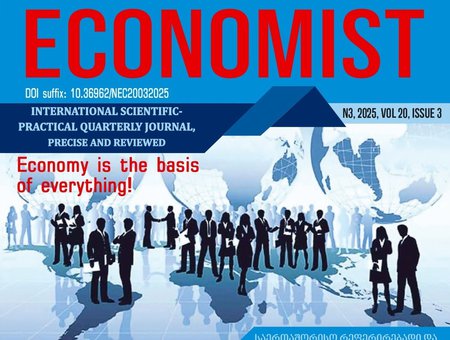The labor market is one of the key components of an economic system, determining the distribution and efficiency of human resources. Over the past few decades, its structure and functioning have undergone significant changes due to technological advancements. At the center of these transformations lie Artificial Intelligence (AI) and automation, which are profoundly reshaping labor market demands and creating new opportunities both for Georgia and globally.
The structure of employment and labor demand is changing not only in favor of individuals with technological expertise but also by enabling the workforce to shift professions and adapt to the evolving needs of the labor market.
This paper discusses the current state of the labor market and its main challenges, including the impact of Artificial Intelligence (AI) and automation on the structure of employment. The main section includes an analysis of labor market dynamics and global technological changes, as well as issues related to unemployment levels in Georgia and the demand for a qualified workforce.
The research employs analytical and synthetic approaches, as well as quantitative and qualitative methods. The empirical basis of the paper is grounded in data and annual reports from the National Statistics Office of Georgia.
The paper argues that AI and technological progress will significantly transform the labor market, requiring a revision of professional qualifications and the acquisition of new skills. While AI and technological shifts create new opportunities, they also pose a threat to jobs based on low and medium qualifications.
The concluding section of the paper presents recommendations aimed at the effective integration of AI into Georgia's labor market, which will help increase the country’s competitiveness and promote effective employment.



